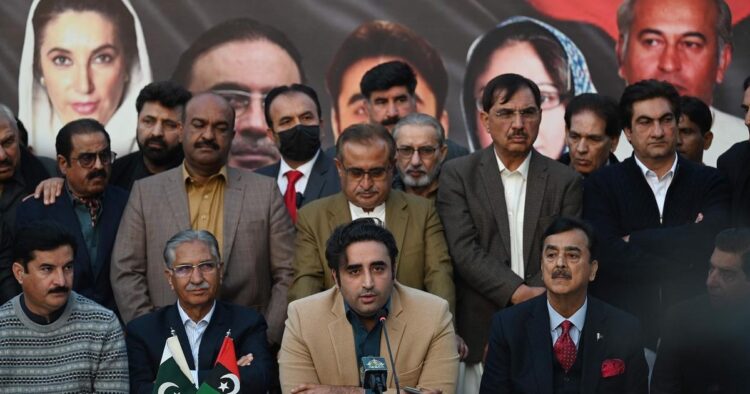After more than a week of negotiations following the elections in Pakistan, the Pakistan Muslim League-Nawaz (PML-N) and the Pakistan Peoples Party (PPP) have come to an agreement to form a new coalition government. This decision was announced in a joint conference led by senior party leaders late on Tuesday night. According to the agreement, Shehbaz Sharif of the PML-N will serve as Prime Minister, while Asif Ali Zardari of the PPP will take on the role of President. Further details regarding the distribution of key positions will be disclosed at a later time, as stated by PPP chairman Bilawal Bhutto-Zardari.
The recent elections in Pakistan, which took place on February 8, were marred by allegations of vote rigging. The results yielded a split mandate, with jailed ex-PM Imran Khan’s PTI-backed independent candidates emerging as the largest bloc. Independents secured 93 seats in the National Assembly, followed by PML-N with 75 seats and PPP with 54 seats, according to a report in the Pakistani daily Dawn.
The coalition between PML-N and PPP has drawn criticism from Imran Khan’s Pakistan Tehreek-e-Insaf (PTI) party, which labeled the alliance as ‘Mandate Thieves’. Despite this opposition, the newly formed coalition expressed determination to tackle the challenges ahead. Shehbaz Sharif emphasized that the road ahead for the government will be arduous, but the coalition is prepared to face the obstacles together. He also expressed gratitude to allies such as Muttahida Qaumi Movement-Pakistan and Pakistan Muslim League-Quaid for their support.
PPP co-chairperson Asif Ali Zardari, who previously served as president from 2008 to 2013, highlighted the coalition’s commitment to the country’s welfare and the interests of future generations. Meanwhile, concerns over the integrity of the elections have been raised by organizations such as the Human Rights Commission of Pakistan and the electoral watchdog Free and Fair Election Network. Both groups have urged the Election Commission of Pakistan to conduct an audit of the election results.
In addition to the election controversy, the suspension of social media platform X (formerly known as Twitter) in Pakistan has raised alarm among internet monitoring bodies. Netblocks reported that Twitter has been restricted in Pakistan for over 48 hours, citing concerns over election fraud. The suspension has been criticized for violating the public’s fundamental right to free expression during a critical period in the country’s political landscape.
As the new coalition government takes shape in Pakistan, it faces the daunting task of addressing election integrity concerns, navigating political opposition, and upholding democratic principles in the face of social media restrictions.

















Comments